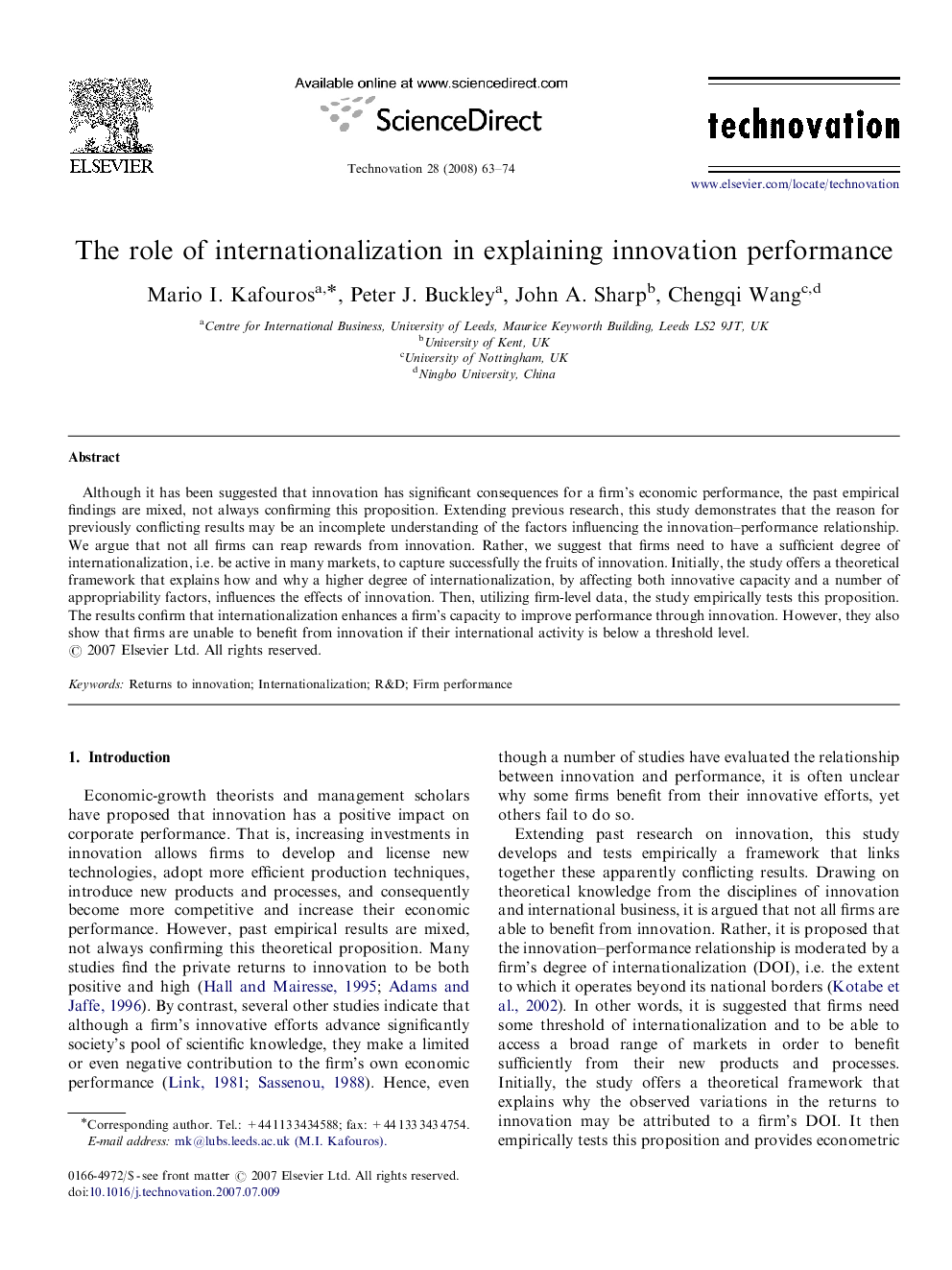| Article ID | Journal | Published Year | Pages | File Type |
|---|---|---|---|---|
| 1022843 | Technovation | 2008 | 12 Pages |
Although it has been suggested that innovation has significant consequences for a firm's economic performance, the past empirical findings are mixed, not always confirming this proposition. Extending previous research, this study demonstrates that the reason for previously conflicting results may be an incomplete understanding of the factors influencing the innovation–performance relationship. We argue that not all firms can reap rewards from innovation. Rather, we suggest that firms need to have a sufficient degree of internationalization, i.e. be active in many markets, to capture successfully the fruits of innovation. Initially, the study offers a theoretical framework that explains how and why a higher degree of internationalization, by affecting both innovative capacity and a number of appropriability factors, influences the effects of innovation. Then, utilizing firm-level data, the study empirically tests this proposition. The results confirm that internationalization enhances a firm's capacity to improve performance through innovation. However, they also show that firms are unable to benefit from innovation if their international activity is below a threshold level.
